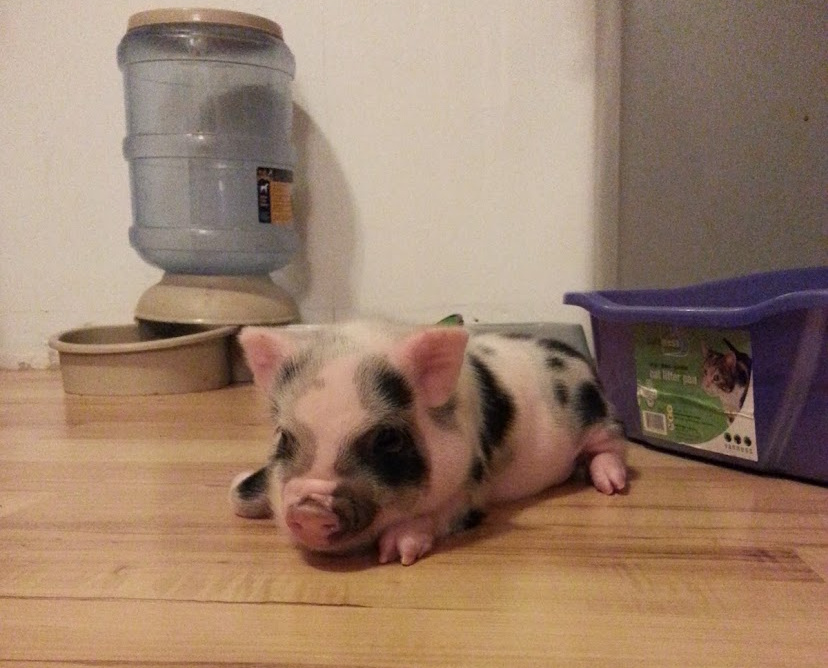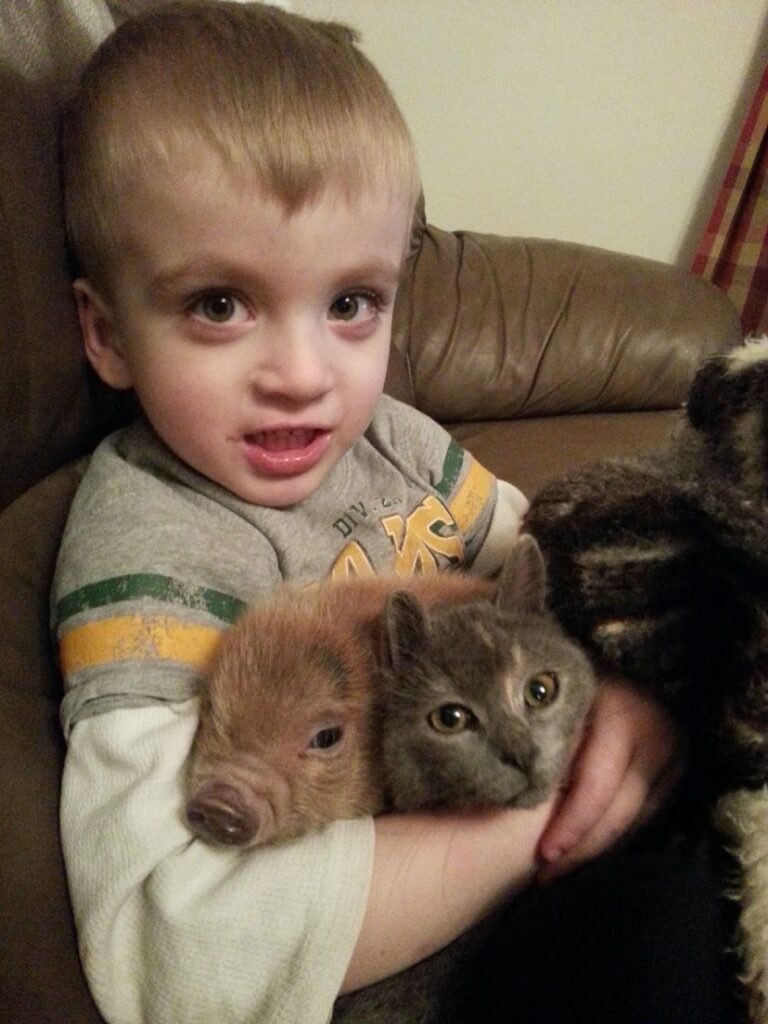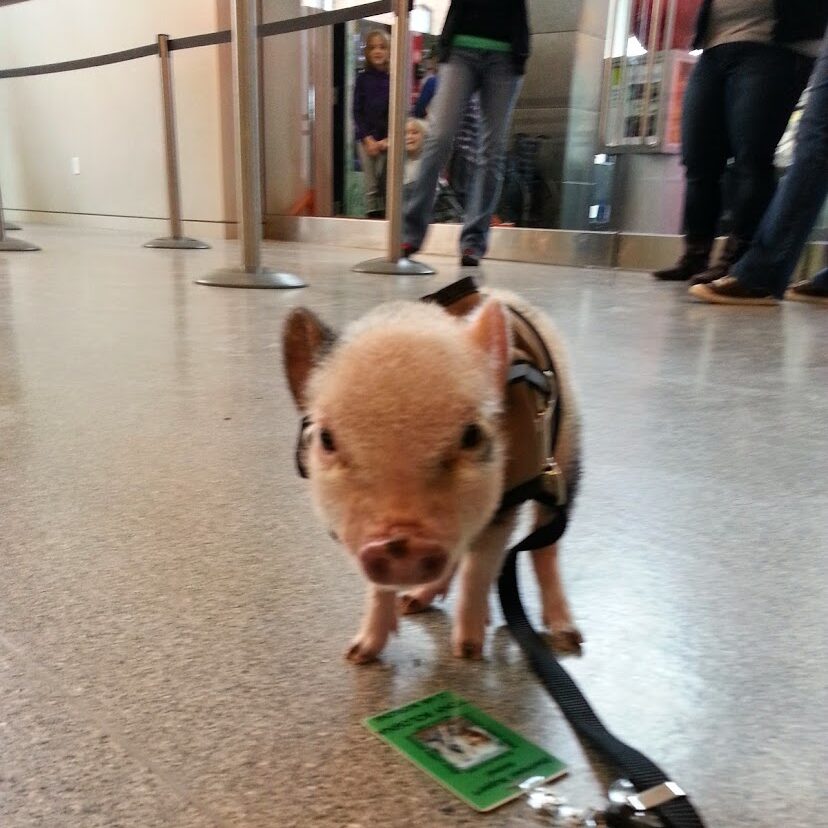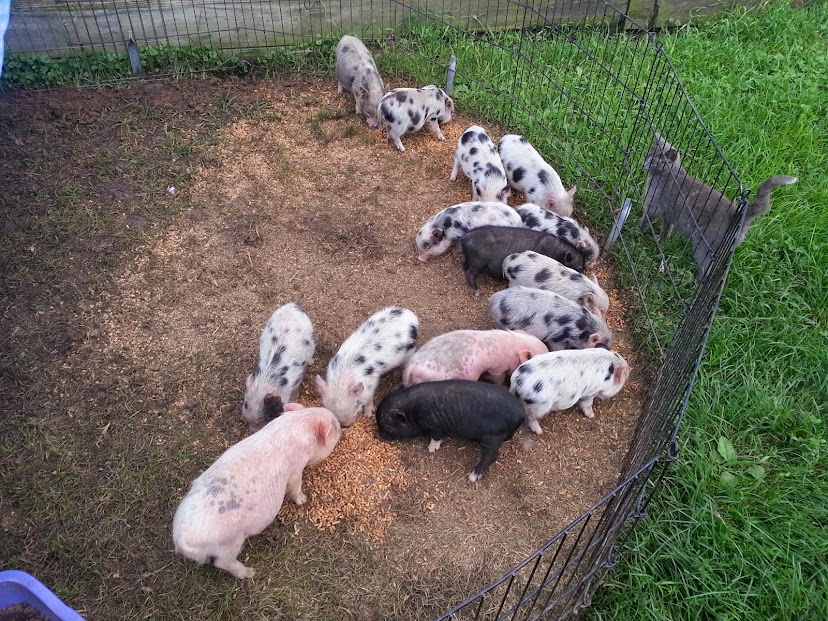Continuing on with our blog series on other species of animals and their unique needs, Dr. Jim Pottebaum wrote this article about Micro-pigs. Dr. Jim has been a large and small animal practitioner in Winterset since 1988. He has had many clients from around the state seek out his veterinary services for micro-pigs. Thank you Dr. Jim for your blog this month.
Iowa is the number one pork producing state in the nation, raising 1/3 of all pigs nationally. 48 million were raised in 2018, and $40.8 billion dollars in revenue for Iowa producers last year.
Now, what about pigs for pets?? Mini, Micro, pocket, or teacup pigs have surged in popularity in the last few years. Micro pigs are cute, intelligent, affectionate, and easy to train. They are hardy and mostly disease free. They provide the owner with a connection to a grandparent’s farm or rural life, while living in the city.
What you need to remember is that they are a PIG, not a dog. Some cities have zoning restrictions against farm animals, and will not allow you have pigs within the city limits, even if they are pets.
It is important to see both parents. Sometimes breeders show pictures at a young age and not full grown. Pigs that grow to big are the most common reason for surrender to animal shelters.
Feeding mini pigs should be easy. They are omnivores and need a balance of protein, fiber, fat, vitamins, minerals, and carbohydrates. Pelleted feed is available, and pigs enjoy a variety of veggies and fruits in their diet. They enjoy people food, but be aware this can cause digestive upsets. It is important that they receive pig pellets to ensure vitamin and nutritional requirements are being met. Information on the internet can be misleading about feeding recommendations. Feeding a reduced level each day to keep a pig small may lead to starvation and develop health issues. Each pig should be maintained specifically to its size and needs.
A book called, “Code of Practice for the Care and Handling of Pigs”, is a great resource for anyone that is considering having a pig for a pet.
Pigs can adapt to living indoors or outdoors much like a dog, and are usually tolerant of other pets. They are curious and enjoy an environment to explore, root, and manipulate objects. Without opportunities to act normally, pigs will become bored and create their own fun in the house like getting into cupboards, bumping or pushing over furniture, etc. Pigs love outdoors with space and obstacles. When outdoors, they need shade from the bright sun. A child’s swimming pool or pig wallow (shallow mud pit) is heaven because it cools them on hot days. They don’t sweat, so water/mud acts as insect repellent, sun screen, and skin conditioner. Appropriate fencing is important. Pigs are very strong and can uproot or push thru many fences. Fences add protection from predators such coyotes or dogs.
Spay or neuter your pig early. Intact males can be aggressive. Intact females will be vocal and moody for a period of time every month. Healthy micro-pigs can live at least 6-8 years, and 10 to 12 is not uncommon. Micro-pigs can be very enjoyable and provide years of love and entertaining memories. Call your local veterinarian for advice concerning breeders and care of your micro-pigs. It would be wise to find your veterinarian before getting a micro-pig for a pet since not all veterinarians are willing to see pigs. Pigs do need routine hoof care and sometimes the male’s tusks need to be filed down. It is important to have a veterinarian that is able to do these things for you. If you plan to travel, please consider where they can stay? Not all boarding facilities are willing to board micro-pigs. These are important things to consider prior to getting a pig for a pet. Micro-pigs offer great companionship and entertainment. They are a special kind of pet that has unique needs.




